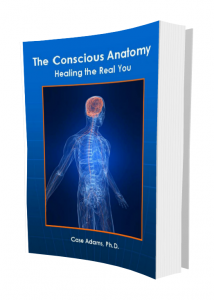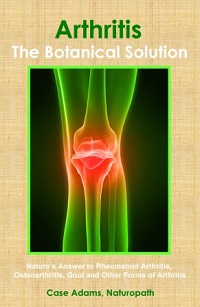Qi Deficiency Proven Out by Science
Qi deficiency is now a scientific fact.
For thousands of years Chinese and Ayurvedic physicians have diagnosed illnesses related to ones flow of life forces – the Qi or Chi in Traditional Chinese Medicine and Atma in Ayurvedic Medicine. The movement of the life force is said to flow through subtle energy channels – called meridians in Chinese medicine and nadis in Ayurvedic medicine.
Now researchers are discovering the biochemical traces related to at least one condition diagnosed by TCM doctors – that of Qi deficiency.
In this article
What is Qi deficiency?
The occurrence of Qi deficiency is related to the stagnation of bloodflow. It is often symptomized by a pale tongue, a weak pulse and high stress factors. It also often accompanies atherosclerosis and coronary heart disease.
But are all cases of artery disease or heart disease Qi deficiency?
No. Researchers from the China-Japan Friendship Hospital and the Beijing University of Chinese Medicine studied 45 people with coronary heard disease to investigate this and precisely what physiological differences lie between those with Qi deficiency and those without. The heart disease patients were compared with 15 healthy volunteers.
The researchers had each patient – who had been initially diagnosed with heart disease through conventional means – examined by a Traditional Chinese Medicine doctor to determine whether they had Qi deficiency.
The researchers found that of the 45 heart patients, 21 were diagnosed with Qi deficiency and the rest did not have Qi deficiency.
Qi deficiency markers
The researchers then ran extensive blood analyses on each patient and healthy volunteer to investigate whether there were any physiological differences between those with Qi deficiency and those without.
The researchers found no difference in most of the parameters:
“There was no difference in the aspect of age, gender, body mass index, the course of CHD, diabetes combination, hyperlipemia combination, use of antiplatelet drugs, nitrate esters drugs, statins, ACEI/ARB, beta blocker, and calcium channel antagonist between the patients with or without Qi deficiency syndrome.”
The researchers also measured levels of 39 different blood metabolites, including:
“The micromolecule substances were α-glucose, β-glucose, β-hydroxyisobutyric acid, β-hydroxybutyric acid, phenylalanine, alanine, acetone, choline, methionine, dimethylamine, glycine, glutamate methylamine, glutamine, creatine, creatinine, inositol, methylamine, lysine, leucine, tyrosine, hippuric acid, ornithine, taurine, praline, carnitine, lactic acid, tryptophan, threonine, aspartic acid, valine, isoleucine, acetyl glutamic acid, histidine, and N-acetyl glycoprotein. The macromolecule substances were unsaturated fatty acids, lipid compound, lipid, low density lipoprotein/very low density lipoprotein, and high density lipoprotein.”
The researchers found 25 different metabolites significantly different between the heart disease patients and the healthy patients. This relates to previous research, that has found those with heart disease have numerous differences in metabolism – relating to a disease model termed “metabolic disorder.”
However, finding the difference between those patients with Qi deficiency and those without proved more difficult.
In fact, there were mainly four metabolites that were consistently lower among all the Qi deficiency patients. These were:
- acetyl glutamic acid
- lysine
- valine
- carnitine
Are these important?
At first glance, these may not seem important. However, these are critical elements for healthy metabolism. Lysine deficiencies have been linked with nausea, dizziness, fatigue, stunted growth and appetite loss. Carnitine is critical to the transport of energy products across the mitochondria. Acetyl glutamic acid is also related to cellular energy metabolism and the assembly of proteins.
Other research has also connected these components with Qi deficiency, and the researchers pointed out the critical nature of glutamate metabolism:
“Dizziness and fatigue symptoms in Qi deficiency syndrome patients may be associated with glutamate metabolism dysfunction. Significantly reduced levels in glutamine in Qi deficiency patients had a certain correlation with immune function decline.”
The researchers concluded that these differences in biological markers proves that Qi deficiency has a physiological basis. A distinct difference in metabolites points to a deeper difference in metabolism:
“According to the results of hierarchical clustering, the characteristics metabolites could basically achieve the distinction between Qi deficiency and non-Qi deficiency.”
Other research has shown how Qi deficiency can result in changes in T cell cytokines in chronic fatigue syndrome. Researchers tested 80 chronic fatigue patients and found that Qi deficiency was related to ratios between CD3+, CD4+ and CD9+ T cells – which were improved through acupuncture treatment for Qi deficiency.
REFERENCE:
Qi Shi, Huihui Zhao, Jianxin Chen, et al., “Study on Qi Deficiency Syndrome Identification Modes of Coronary Heart Disease Based on Metabolomic Biomarkers,” Evidence-Based Complementary and Alternative Medicine, vol. 2014, Article ID 281829, 15 pages, 2014. doi:10.1155/2014/281829
H. H. Zhao, J. X. Chen, Q. Shi, and W. Wang, “Gel electrophoresis analysis on plasma differential protein in patients with unstable angina of blood-stasis pattern,” Chinese Journal of Integrated Traditional and Western Medicine, vol. 30, pp. 488–492, 2010.
Ling JY, Shen L, Liu Q, Wang LY. [Impacts on chronic fatigue syndrome of qi deficiency syndrome and T cell subgroups in patients treated with acupuncture at selective time]. Zhongguo Zhen Jiu. 2013 Dec;33(12):1061-4.



















